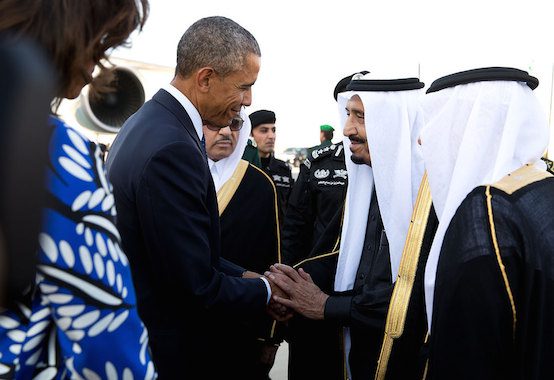The Importance of Distinguishing Between Clients and Allies

Bilal Saab makes the case for a more precise use of the term ally:
The word “ally” is used far too casually in Washington’s Middle East lexicon. It’s time to break this bad habit, because the truth is that with the exception of Turkey—a NATO member—the United States does not share a single alliance with any Middle Eastern country.
I agree, and when writing about states in the region I try to avoid referring to client states as allies. For one thing, calling these states allies creates the false impression that our commitments to them are equal to the commitments made to genuine treaty allies. While it may be flattering to these states to call them allies, the term implies that the U.S. is obliged to aid and defend them when the U.S. has no such obligations. It also allows supporters of the different client states here in the U.S. to put the concerns of clients ahead of those of actual allied governments. We saw during the debate over the nuclear deal how misleading this can be. Several of our treaty allies were working with the U.S. to negotiate the deal, and some regional client governments were opposed to the agreement, and opponents of the deal here at home claimed that the administration was ignoring or betraying our “allies” when they were the ones doing exactly that.
Saab continues:
That Washington so frequently mischaracterizes its bonds with Middle Eastern capitals does great disservice to them, to their own expectations from the United States, and to U.S. policies toward the region. It also unnecessarily aggravates nations with which the United States has real alliances.
Israel and Saudi Arabia are the most obvious examples of how inflating the significance of a relationship with a client state can lead to significant distortions in the relationship. Constantly referring to clients as allies inflates their sense of their own importance to Washington, and that makes them both more demanding and less cooperative. This also has harmful effects on how U.S. policies in the region are framed and debated. When a stated U.S. policy is at odds with the preferences of one or more regional clients, opponents of that policy often treat the clients’ interests as if they should take precedence over our own, and pretending that clients are allies helps them to do that.
More important, referring to them as allies makes our relationships with client states seem more permanent and vital to our interests than they are. However important our formal alliances in Europe and Asia are, these client relationships are much less important to our security, and our obligations to these states are fewer and less significant. Our government should adjust how it talks about these relationships accordingly.
Comments